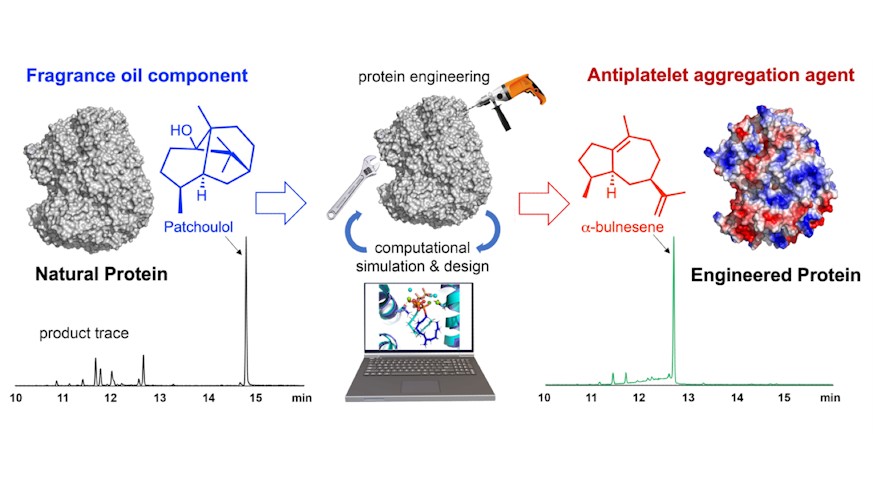Major advance in designer protein engineering
15 November 2023

Researchers used computer-guided enzyme engineering to sustainably generate novel biocatalysts.
Cardiff University researchers have succeeded in redesigning nature’s catalysts to sustainably generate terpenoids - key but complex biologicals with many applications in medicine and sustainable agriculture.
Terpenoids are generated by all forms of life but often only in tiny quantities, and their intricate chemical architecture makes conventional synthesis costly and wasteful.
The researchers were able to use a more efficient method to produce terpenoids using enzymes - natural, biodegradable catalysts - that can make such chemicals, often in just one step.
The research groups of Professor Rudolf Allemann (Cardiff University) and Dr Marc van der Kamp (University of Bristol) used a combination of computer simulation and real-world experimentation to redesign a group of biocatalyst proteins called terpene synthases to efficiently generate a medicinally active compound.
Using state-of-the-art computer simulation, the teams were able to redesign an enzyme's structure to produce the biological terpenoid alpha-bulnesene, an agent with the potential to prevent thrombosis.
Professor Rudolf Allemann said: “Enzyme engineering is an essential tool for a sustainable future, and through the use of cutting-edge computer simulation, we have been able to efficiently reprogramme a protein that makes a fragrance to one that makes a medicine.
“This method can be applied to other terpenoids, enabling more effective and economical production, with a wide range of potential benefits from sustainable health to food production.”
Part of a BBSRC funded collaboration, the work is published in the journal ACS Catalysis.